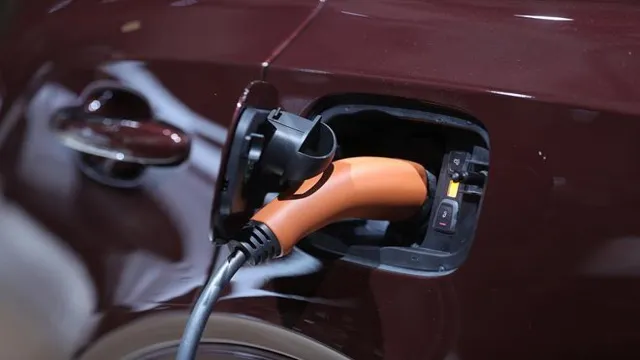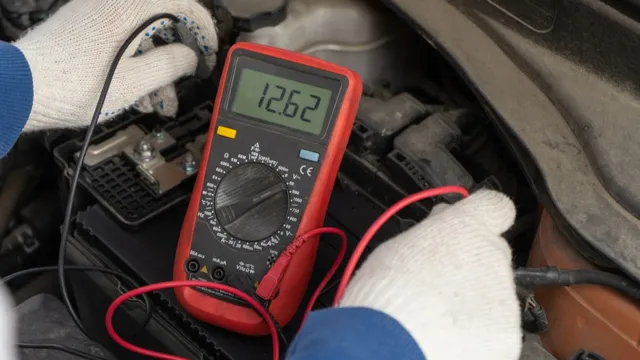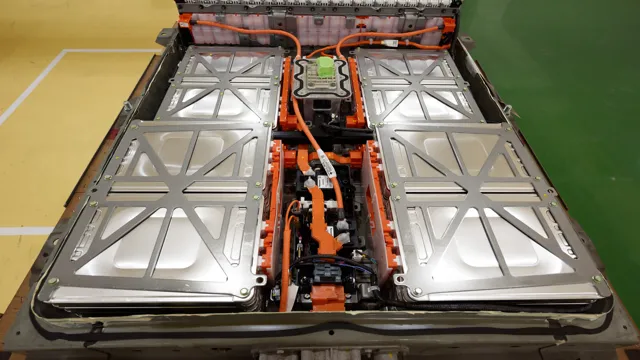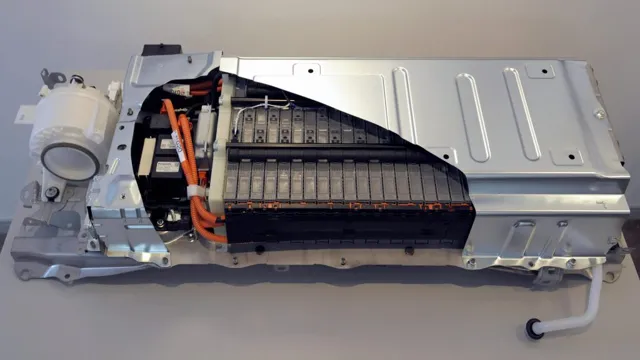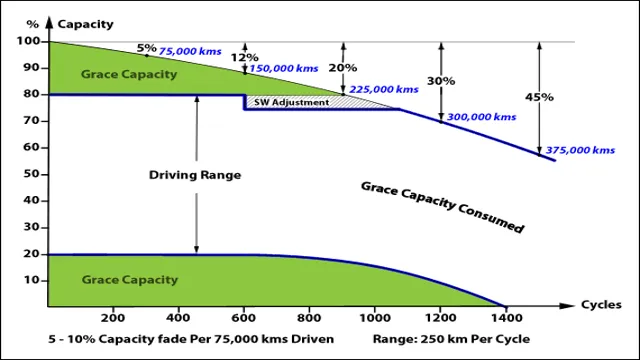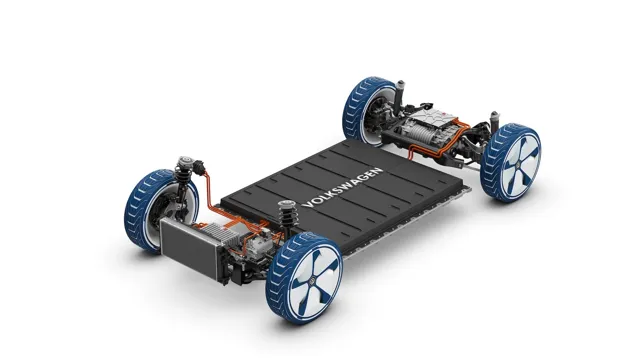Revolutionary Breakthrough: The Future of Electric Cars Traveling Farther with Advanced Batteries
Electric cars are no longer just a futuristic concept. They’re already here, and they’re taking the automotive world by storm. With major automakers offering an increasing number of electric models, it’s clear that electric cars are becoming mainstream.
But what does the future hold for these cars? Will they completely replace gas-powered vehicles, or will they simply be a niche market? The answer isn’t simple, but one thing is certain: the future of electric cars is exciting. One of the biggest advantages of electric cars is their environmental impact. Compared to gas-powered vehicles, they produce zero emissions and are significantly more sustainable.
As governments around the world increase their efforts to reduce carbon emissions and fight climate change, it’s likely that electric cars will become even more popular. In fact, some countries, such as Norway and the Netherlands, have already set targets to ban the sale of gas-powered vehicles by a certain date. But electric cars aren’t just better for the environment – they’re also becoming more affordable.
While they used to be seen as luxury vehicles, the price of electric cars has been steadily decreasing. This, combined with the fact that they’re cheaper to run and maintain than gas-powered vehicles, means that they may soon become the more cost-effective option. Another factor in the future of electric cars is technology.
As battery technology improves, it’s likely that electric cars will become even more efficient and have longer ranges. This will make them even more practical for everyday use, eliminating one of the main concerns that people have about electric cars. Overall, the future of electric cars is looking bright.
While they may not completely replace gas-powered vehicles in the near future, they’re certainly becoming more mainstream. As the world becomes more environmentally conscious and technology continues to improve, it’s likely that electric cars will become even more popular. So if you’re considering buying a new car, it may be worth considering an electric one – who knows, it may soon become the norm.
Better Batteries
If there’s one thing that electric car drivers wish for, it’s a longer-lasting battery. With current technology, a typical electric vehicle (EV) can travel about 200 miles on a single charge. This is enough for most daily commutes but doesn’t cut it for long road trips.
Luckily, better batteries are in the works and promise to increase range significantly. These batteries will be denser and more efficient, allowing EVs to travel farther without needing to stop and charge frequently. With the development of these better batteries, it won’t be long until electric cars can compete with gas-powered vehicles in terms of range.
We’re on the cusp of a very exciting era for EVs and the main keyword “electric car will travel farther on a better battery” sums up the situation perfectly.
Innovations in Battery Technology
Battery technology has come a long way in the past few years, and there are many exciting innovations on the horizon. One of the most promising developments is the quest for better batteries. We all know that our devices constantly need charging, and that can be a real pain.
But thanks to new research and development, we may soon have batteries that can hold a charge for much longer. Some of the most interesting advances in battery tech involve the use of new materials such as graphene and lithium-sulfur. These materials have the potential to increase battery capacity while also reducing costs and environmental impact.
So whether you’re looking to power your phone, your car, or your home, there’s a good chance that you’ll soon have access to better, more efficient batteries that last longer and work better than ever before. And that’s something we can all look forward to.
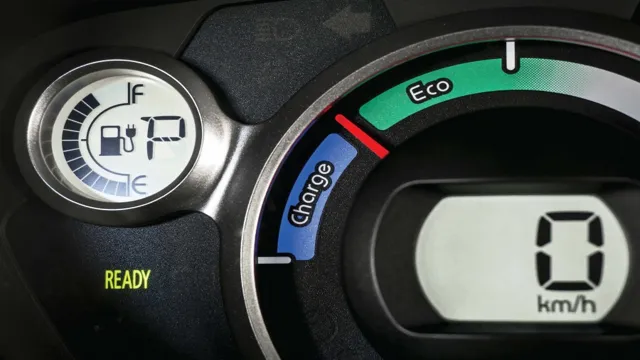
Longer Travel Distance
If you’re an electric car owner, you know that one of the biggest limitations on your ability to drive far distances is the battery lifespan. Fortunately, better batteries are on the way, offering electric car owners longer travel distances. These new batteries use higher energy densities to offer up to 600 miles per charge, a vast improvement over the average 250-300 mile range of current electric cars.
Lithium-ion batteries have been the go-to for the EV industry for years, but newer battery technology like solid-state batteries, flow batteries, and lithium-sulfur batteries are on the horizon. These new battery technologies promise to offer even better energy density, faster charging times, and longer lifespan. With better batteries on the way, it may soon be possible to drive electric cars for long road trips without having to worry about constantly stopping to recharge.
Impact on the Environment
With the increase in popularity of electric cars, there has been a growing need for more efficient batteries. The development of better batteries means that electric cars will be able to travel farther than ever before on a single charge, greatly reducing the environmental impact of transportation. The advancements being made in battery technology means that electric cars will be able to travel longer distances, which means fewer charging stops and less time spent powering up.
This is great news for the environment, as the reduced need for charging stations will mean less electricity usage, ultimately leading to a greener world. By utilizing the power of better batteries, we can all do our part in reducing carbon emissions and protecting our planet. The future of transportation is looking bright, efficient, and environmentally conscious.
Reduction in Emissions
In recent years, there has been increased concern about the impact of human activities on the environment. One significant issue is the amount of greenhouse gas emissions that are released into the atmosphere from various sources, such as transportation and factories. These emissions contribute to global warming and climate change, causing devastating effects on the environment.
However, there has been a reduction in emissions in some areas due to the use of clean energy sources and improved technology. This reduction has had a positive impact on the environment. With fewer emissions being released, air quality has improved, and there has been a reduction in the negative effects associated with global warming.
As we continue to find ways to reduce emissions, the environment will continue to benefit, ensuring a cleaner, healthier planet for future generations. It’s crucial that we all work together to reduce emissions and protect our planet.
Sustainability in Transport
When we talk about sustainability in transport, one of the most significant impacts it has on the environment is the emission of greenhouse gases. Transportation is responsible for a significant portion of global greenhouse gas emissions, accounting for around 14% of all human-made emissions. The burning of fossil fuels in cars, trucks, ships, and planes is the primary source of these emissions.
They contribute to global warming, which leads to climate change, causing devastating consequences such as rising sea levels, extreme weather conditions, and environmental degradation. However, the good news is that there are several sustainable transportation alternatives that can reduce emissions, such as electric cars, cycling, and public transportation. By making a conscious effort to reduce our carbon footprint and choose sustainable transportation options, we can help protect the environment and work towards a more sustainable future.
Economic Benefits
One of the biggest economic benefits of developing a better battery for electric cars is that it will allow the vehicles to travel farther on a single charge. This is important because range anxiety is still a major concern for many potential electric car buyers. They worry that the car will not be able to go the distance they need it to without needing to stop and recharge.
A better battery that can travel farther on a single charge would eliminate this concern, making electric cars more appealing to a wider audience. Furthermore, a more efficient, longer-lasting battery would lower the overall cost of owning an electric car. Currently, the biggest cost associated with electric cars is the battery.
If the battery can last longer and require less frequent replacement, the cost of owning an electric car would go down, making them more financially accessible to even more people. Overall, improved batteries for electric cars promise to bring significant economic benefits to both consumers and the industry alike.
Lower Cost of Ownership
When it comes to vehicles, the cost of ownership plays a significant role in the decision-making process. Luckily, electric vehicles (EVs) offer many economic benefits that make them an attractive choice for budget-conscious buyers. Firstly, EVs have reduced operating costs compared to traditional gas-powered vehicles.
Charging an EV is far cheaper than filling up a gas tank, and maintenance costs are lower due to a less complex powertrain with fewer moving parts. Additionally, EVs have longer lifespans due to their simplicity and durability, meaning fewer repair costs over time. Secondly, the cost of owning an electric vehicle is further reduced through government incentives and tax credits.
Many states offer rebates or tax credits for EV purchases, and the federal government also provides a tax credit for eligible models. Overall, choosing an EV can save you significant amounts of money in the long run, making them a smart economic choice for budget-conscious buyers.
Disruption in the Energy Industry
Renewable Energy Renewable energy has been gaining popularity over the past few years, and it’s no surprise that there are economic benefits to this disruption in the energy industry. Renewable energy sources such as wind, solar, geothermal, and hydro are becoming increasingly affordable, thanks to technological advancements and improvements in efficiency. This shift towards renewable energy has created jobs in the manufacturing, installation, and maintenance sectors, leading to a boost in the economy.
Renewable energy has also reduced operating costs for businesses and households, providing long-term financial benefits. Moreover, by decreasing greenhouse gas emissions, renewable energy has helped improve public health and environmental quality, ultimately reducing healthcare costs. These economic benefits of renewable energy reinforce the idea that transitioning to renewable energy sources is a win-win situation for both the economy and the environment.
Conclusion
In a world where range anxiety is a genuine concern for electric vehicle owners, a better battery is the key to unlocking the full potential of cleaner, greener transportation. With longer lasting and more efficient battery technology, electric cars will be able to travel farther and faster than ever before, making them a viable option for everyday driving. So if you want to burn rubber without burning fossil fuels, invest in a better battery.
Your wallet and the planet will thank you.”
FAQs
How does a better battery affect the range of an electric car?
A better battery can allow an electric car to travel farther, increasing its range.
What advancements have been made in electric car battery technology?
There have been significant advancements in electric car battery technology, which have resulted in longer ranges and faster charging times.
How long will a fully charged battery last in an electric car?
The length of time a fully charged battery will last in an electric car depends on a number of factors, including the car’s make and model, driving habits, and weather conditions.
Are there any downsides to using a better battery in an electric car?
While a better battery can increase the range of an electric car, it can also be more expensive and potentially require more maintenance.
